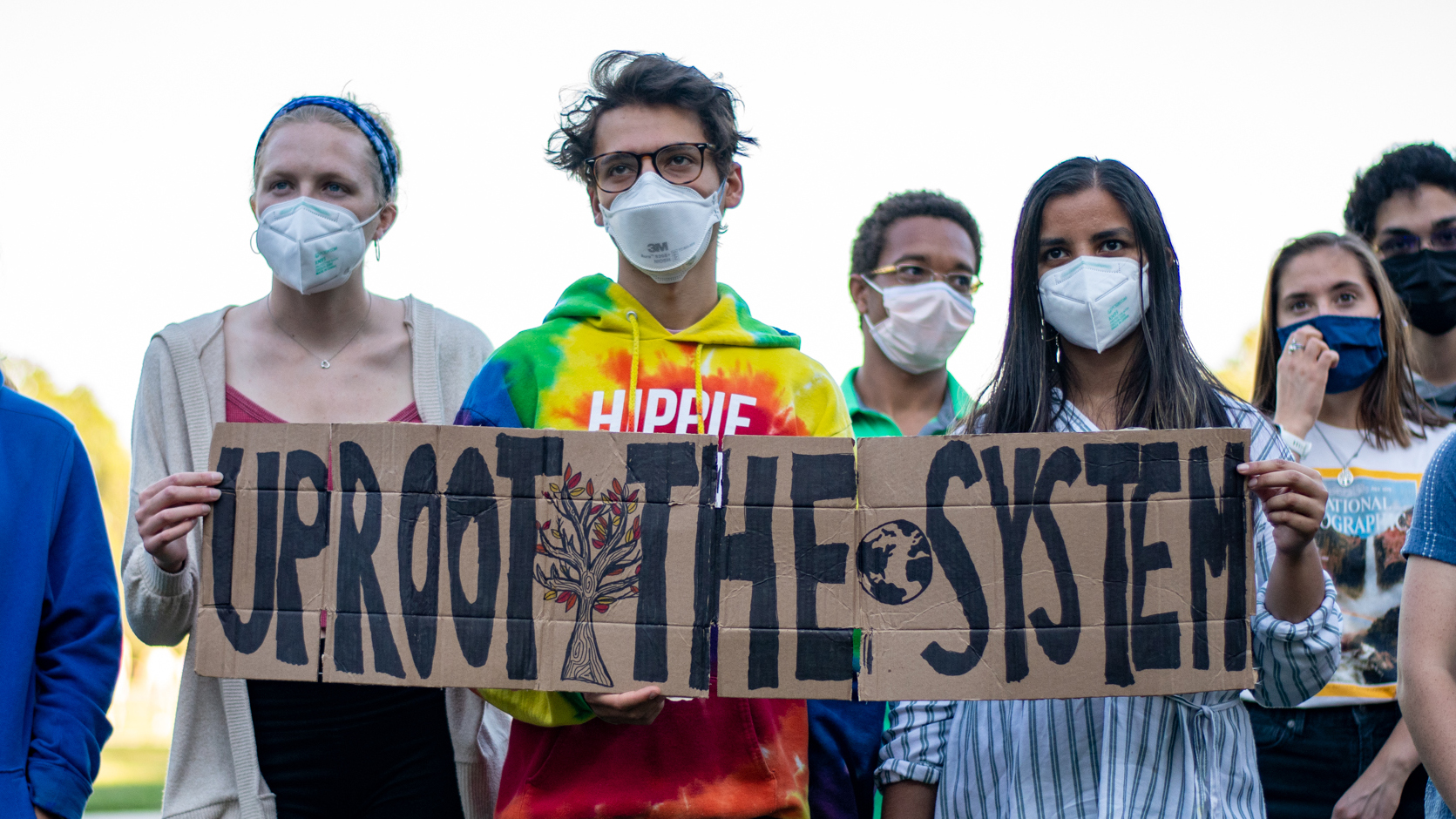Views expressed in opinion columns are the author’s own.
The recent United Nations COP26 climate summit has finished with a familiar synopsis: significant steps have been made, but not nearly enough to address the crisis at hand. Closer to home, the passage of President Joe Biden’s major legislation has similarly been deemed as a historic investment in climate, yet missing the mark in terms of scale.
At the current moment, it seems as if politicians are more divorced from reality than ever before. Not only do large corporations influence the decision-making of politicians, but the broadly male, old, white and elite demographics of the decision-makers don’t accurately represent the people of the world — and especially not underrepresented communities who will be most affected by climate change.
In the aftermath of the disappointing climate compromises at both the COP26 and in the deliberations over the American infrastructure bills, it is clear that everyday citizens, not out-of-touch politicians, should be at the core of decision-making. Citizen climate conventions — citizen assemblies of randomly selected citizens that represent the different opinions and demographics of the countries — can be a solution.
COP26 started with lofty expectations and was billed in the media as the world’s only hope for survival. However, as the week went by, hope quickly dwindled.
The difficulty of travel, visa restrictions and other barriers prevented many people from the Global South from traveling to Glasgow to make their voices heard, sparking concerns about access and representation. Indigenous groups and those directly impacted by climate change similarly found it difficult to get a seat at the table. The convention ended with some improvements to current plans, but was filled with compromises and vague promises that are not enough to cut emissions at the speed necessary.
Similarly, the U.S. has struggled to pass the historic legislation needed to honor their climate pledges. While the bipartisan infrastructure bill has passed both chambers of Congress and was signed by President Biden, the crucial Build Back Better Act is being held up in the House of Representatives, and if passed, will face challenges by senators with cozy ties to the fossil fuel industry. Americans support the tenets of the bill, and even had shown support for many of the necessary policies that were taken out of the bill. A clear disconnect can be seen between partisan politicians, who take money from or have interests in fossil fuels, and everyday American citizens, who largely support environmental measures that are necessary, but have been deemed politically “toxic.”
The dual issues of representation and political inaction seem intractable, but potential solutions that center everyday people in the decision-making process exist and have been utilized by various countries. Citizen climate conventions are a particularly intriguing option that bypasses politics and unequal representation.
Citizens reflecting the demographics of the body politic are chosen, and go through three phases: learning, deliberating and decision-making. The participants are provided information from multiple angles and given a positive and inclusive atmosphere to discuss the merits of the different plans, and decide on what proposals should be made. Citizen assemblies reflect a purer form of democracy — one that is removed from the money, power and politics that often fail to reflect the public’s opinion.
Countries like France and the U.K. have utilized citizen assemblies to address climate goals and policies. In France’s case, it was an attempt to center equity in the climate debate after the ill-fated increase in the gas tax prompted the outrage and “yellow vest” protests. The committee passed 149 proposals, with many of the proposals reaching over 90 percent support.
An inclusive, deliberative climate convention of this manner would be a welcome change to the toxic and partisan debates seen in the U.S. The removal of election outcomes and money in politics could serve to bring fresh perspectives to the table. In addition, the diversity of the participants would stand in stark contrast to the Congressional representative body. For an issue such as climate change, representation for young BIPOC communities is especially important, given the fact that underserved communities bear the brunt of the climate impact and younger generations will have to face the consequences for today’s inaction.
The issue of representation on problems as severe as climate change is crucial to crafting solutions that address the scale of the problem, while ensuring equity to communities that are most affected. As demonstrated by the overwhelming support for key climate provisions and the effective deliberations in citizen climate conventions, the people have a better sense of the crisis at hand than do out-of-touch politicians.
Leaders are not doing enough on climate change. Everyday citizens should be empowered to craft the future they deserve.
Zach Wandalowski is a sophomore government and politics and economics major. He can be reached at zachwand@gmail.com.



